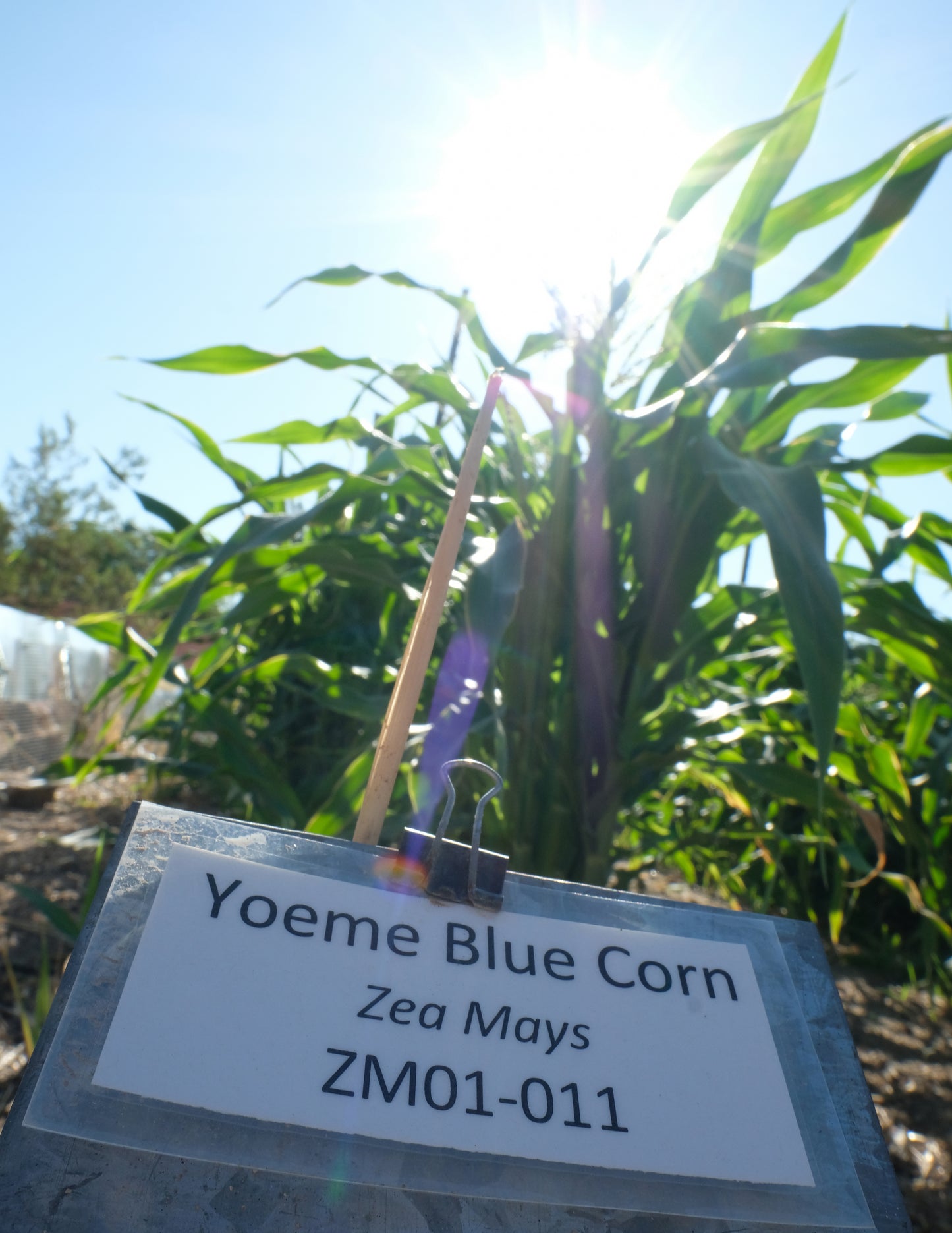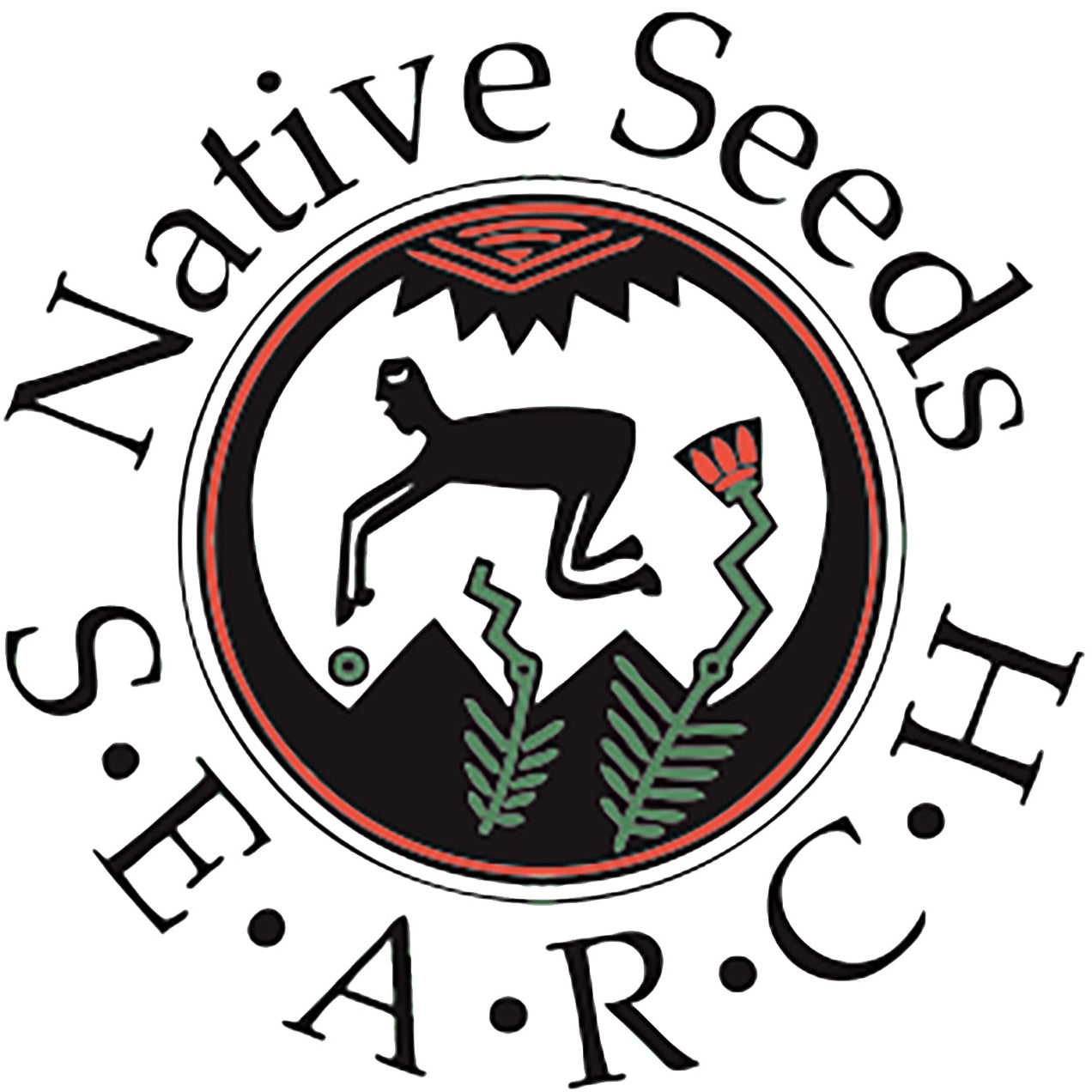
By Michelle Langmaid, Volunteer & Production Coordinator
Last week we were admiring how robust and healthy the plot of Yoeme Blue corn appeared, it had begun to tassle, and was reaching its mature height of 3-5 feet. Predictably, other community members had also noticed; mostly fig beetles and aphids, but also leaf-footed bugs, striped cucumber beetles, and corn earworm. It’s a veritable multi-generational mixer out there.
With all of the six-leggeds in the corn patch, of course the knee-jerk reaction is to kill them. However, most sprays you find on the market (organic** or otherwise) that are strong enough to level an infestation of undesirables can be harmful to beneficial insects as well. These include bees, lady beetles and their larvae, lacewings and assassin bugs among others. It seems we are constantly having to make a choice of whether or what to kill and how to do it.

Corn earworm having the best day of its life.
At the Conservation Center, we’re fortunate to have a willing group of volunteers and are growing on a small enough scale (less than ¼ acre) that we can usually use less toxic but more labor intensive control methods. The fig beetles in the corn, for example, get picked off by hand and fed to the chickens. If a plot is small enough, we use a sprayer attachment on a hose to gently annihilate aphids on the undersides of leaves with water; this method works well when repeated 2-3 times over the course of an aphid infestation. With the Adopt-A-Crop Yoeme Blue corn, heavily infested plants were flagged and pressure-sprayed with water, then checked daily thereafter. Lady beetle larvae and assassin bugs do feed on aphids, but experience has shown us that they can’t keep up with a large population without a little help. In your own garden you can try a garlic-based spray to deter aphids in the earlier stages of their residence, and some people have success with insecticidal soap (although this will also affect beneficials). If you have kids, then nothing screams FUN quite like smushing soft aphid bodies with your fingers between bouts of screen time. Whatever you choose, there are some fantastic resources in Tucson and beyond. Arbico Organics has many options for local gardeners looking for appropriate pest applications, and the University of Arizona Extension has great technical resources as well.
In addition to the tissue damage aphids can cause with their piercing/sucking mouthparts, they are also a destructive garden pest because they can easily transmit diseases to and from their host plant. Once you’ve noticed aphids on your plants, keep an eye out for symptoms like leaf discoloration, wrinkling, or drying symptoms too. And remember, planting the right seeds at the right time can go a long way in lessening plant stress so they can stand up to the onslaught of pathogens!

Yoeme Blue corn cob, slightly past milk stage and not ready for harvest yet
For now, the Yoeme Blue corn is holding up pretty well! You can see from the photo (above) that corn earworm has caused some damage at the tip and pollination is not 100%, but the brilliant blue and purple kernels are exactly what we expect to see in this flour corn, and all in all we’re happy with its progress! Yoeme Blue was originally collected at the Salt River Pima reservation and is one of only four low desert blue corn varieties in the seedbank, making it a critical grow-out this season.
Stay tuned for more Adopt-A-Crop updates as the season progresses, and remember, it’s not too late to Adopt-A-Crop!
**Note: Seeds distributed by NS/S are not certified organic. Seeking certification would mean that all of the growers we work with to produce seed would also need to be certified, which could create an unnecessary hardship. Nevertheless our crop management practices generally adhere to or exceed the National Organic Program standards.